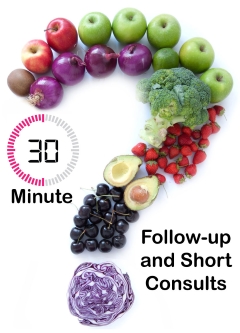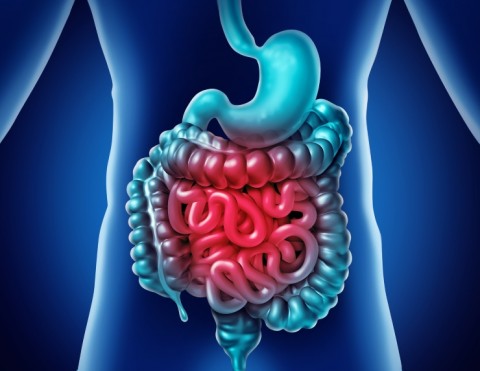DrCarney.com Blog
High Fiber Diets Ward off Inflammatory Bowel Disease
Inflammatory Bowel Disease is the term used to describe both Crohn's Disease and Ulcerative Colitis. Crohn's Disease and Ulcerative Colitis are disorders of the gastrointestinal tract that cause prolonged inflammation of the gut. The gut is comprised of the mouth, esophagus, stomach, small intestine, large intestine, and anus. While Ulcerative Colitis causes inflammation of the colon, Crohn's disease can affect any portion of the digestive tract. According to the World Gastroenterology Organization, some of the symptoms associated with Inflammatory Bowel Disease include diarrhea, constipation, nausea, vomiting, abdominal cramps, abdominal pain, and abnormal bowel movements.
Inflammatory Bowel Disease is a major public health threat to an estimated 1.2 million Americans. In the United States, an estimated 700,000 physician visits and 100,000 hospitalizations annually are due to Crohn's Disease and Ulcerative Colitis. Many studies have cited several factors, including diet, to play a significant role in influencing the risk of developing Inflammatory Bowel Disease. The findings of a 2012 study published in Nutrition Research revealed that the consumption of an additional 10 grams of fiber per day decreased the risk of developing Crohn's Disease and Ulcerative Colitis by 13%. The team of researchers concluded that Inflammatory Bowel Disease is less likely to occur in individuals who are frequent consumers of high-fiber diets.
Dietary Fiber Protects From Inflammatory Bowel Disease?
An estimated 100 trillion bacteria resides in different portions of the human gut, particularly in the large intestine. Fermentable fiber is the choice food of these microbes. When gut microbes are starved of fermentable fiber, they feast on the mucus lining of the gut and destroy the integrity of the lining of the gastrointestinal tract. Penetration of the protective mucus lining of the gastrointestinal tract triggers inflammation in the small and large bowels, promoting the development of inflammatory diseases, such as Crohn's Disease and Ulcerative Colitis.
In addition, the gut microbes break down fermentable fiber into vitamins, minerals, short-chain fatty acids, and other compounds. The short-chain fatty acids produced from the microbial digestion of fiber help to protect individuals from Inflammatory Bowel Disease by improving immune function and inhibiting the inflammation process.
Create Plate Space for Fiber-rich Foods
Most Americans do not obtain enough fiber because they lack unprocessed plant foods in their diet. While the recommended fiber daily intake is 38 grams per day for men and 25 grams per day for women, most Americans consume only about half of the recommended amount per day. Today's fiber-deficient Western diets may be responsible for high incidences of Ulcerative Colitis and Crohn's Disease in the United States and other developed countries. Creating more space on your plate for foods high in fermentable fiber, such as beans, legumes, oat, barley, fruits, and vegetables, will greatly reduce your chances of ending up as one of the millions of people who are suffering from Ulcerative Colitis and Crohn's Disease.
Additional Information:
(1) Inflammatory Bowel Disease
(2) NCBI PubMed: Dietary Fiber Reduces Risk of Inflammatory Bowel Disease
(3) Scientific American: Fiber-Famished Gut Microbes Linked to Poor Health
(4) Colonic Health: Fermentation and Short Chain Fatty Acids
(5) Linus Pauling Institute: Fiber
(6) NCBI PubMed: Bacteria penetrate the normally impenetrable inner colon mucus layer in both murine colitis models and patients with ulcerative colitis Got Questions?Scroll Down Page to Leave Comments

We would love to receive your questions. Join in the Starch-Smart Discussions on DrCarney.com by signing up for a free membership to the Dr. Carney Community.
Due to demand for nutritional advice, Dr. Carney's offers Starch-Smart® System "Dietary Care Extraordinaire" Food Coaching telephone sessions. The first sessions is always one hour. Subsequent sessions can be thirty minutes or one hour: Click Here For 30 Minute Food Coaching Session Please Note: Food Coaching sessions are not medical appointments and are not intended to replace your own physician. No tests will be ordered and no prescriptions will be provided.Thirty Minute Phone Consult with Dr. Carney

Telephone Food Coaching Sessions with Linda Carney MD
When you subscribe to the blog, we will send you an e-mail when there are new updates on the site so you wouldn't miss them.




